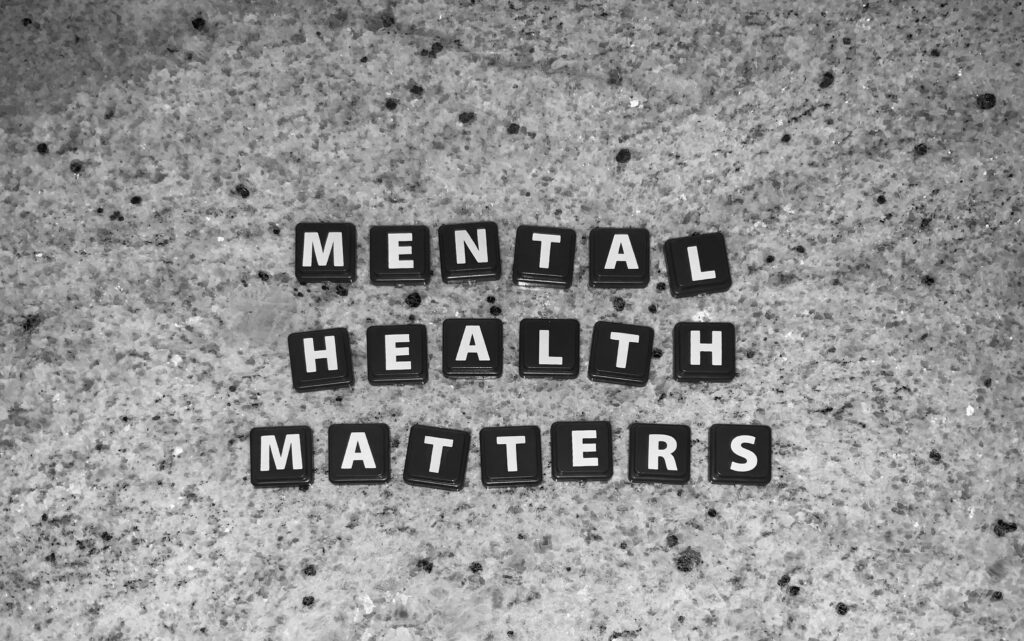Learn Powerful Mental Health Therapy Terms In Houston 2024

Most people believe there is a mental health crisis in the United States today. And more and more people feel encouraged to speak out about their mental health, both about their problems and how they take care of their mental wellness. Because of this, therapy "buzzwords" have become more commonplace and used in everyday conversations. Unsure of what terms like "cognitive distortions" and "attachment styles" mean? We'll dive into the meanings behind the most common buzzwords in just a moment. But first, here's why understanding these specific terms can be powerful for your mental health journey.
- Clarity and Accuracy: Technical terms can ensure therapists and clients are on the same page. Imagine discussing "feeling down" versus Major Depressive Disorder. The first is vague, while the second provides a clear clinical picture.
- Normalizing Experiences: Many therapy terms describe everyday human experiences. Knowing you're not alone in dealing with "cognitive distortions" or having an "insecure attachment style" can be validating.
- Building a Toolbox: Therapy equips you with tools to manage your mental health. By understanding terms like "coping mechanisms" and "triggers," you can identify what works (or doesn't) for you.
- Empowering Self-Advocacy: Therapy buzzwords can empower you to advocate for yourself. If you understand "gaslighting," you can recognize and address unhealthy relationship dynamics.
But therapy goes beyond diagnoses. Let's explore some common buzzwords and how they can empower you:
- Cognitive Distortions are Negative thought patterns that can fuel anxiety or depression. Examples include "all-or-nothing thinking" (seeing things in extremes) or "mind-reading" (assuming you know what others think). With the implementation of Cognitive Behavioral Therapy (CBT) or Acceptance and Commitment Therapy (ACT), you can learn to challenge these distortions and develop healthier thinking patterns by learning to understand them.
- Coping Mechanisms are the ways we manage difficult emotions and situations. Some coping mechanisms, like exercise or spending time with loved ones, are healthy. While others, like substance abuse or isolation, are not. Recognizing your coping mechanisms is crucial for building a toolbox of healthy strategies.
- Your Inner Child refers to your childhood self's emotional needs and experiences. Therapy can help you explore how these experiences may impact you in the present and develop ways to heal and nurture your inner child.
- Mindfulness is the essential human ability to be fully present, aware of where we are and what we're doing, and not overly reactive or overwhelmed by what's happening around us. Mindfulness exercises can help you manage stress, improve focus, and gain greater self-awareness.
- Boundaries are the emotional and physical limits we set in relationships. Boundaries are not meant to be mean. They are not about being self-centered and "me me me." Boundaries are knowing that we have a choice so we can take ownership of our choices. Healthy boundaries are essential for protecting your well-being and fostering fulfilling relationships.
- Triggers are events or situations that evoke emotional responses, often negative ones. For a military veteran returning home from a tour of duty, an example of a trigger might be loud noises or flashing lights. Identifying your triggers is the first step to developing healthy management strategies.
- Vulnerability is the willingness to be open and emotionally honest. Vulnerability can be scary, but it's also essential for building strong, authentic relationships and fostering self-compassion. Brene Brown's book Daring Greatly defines vulnerability as "uncertainty, risk, and emotional exposure." Through her research, she shares two powerful yet opposing takeaways in her book and her TED talk on shame and vulnerability.
- Gaslighting is a form of emotional abuse where someone manipulates another into questioning their reality. Does your partner repeatedly say things that confuse you? Because of this, do you often start questioning your perception of reality within your relationship? Do you question your sanity altogether? If so, your partner may be using what mental health professionals call "gaslighting." Understanding gaslighting can empower you to recognize and address unhealthy dynamics in relationships.
- Attachment Style describes how we form close relationships influenced by early childhood experiences. There are four main attachment styles: secure, anxious, avoidant, and disorganized. Understanding your attachment style can help you build healthier and more secure relationships.
- Trauma-informed therapy: This approach to care acknowledges the impact of trauma on a person's life. It asks, "What happened to you?" rather than, "What is wrong with you?" Trauma can manifest in many ways, and trauma-informed therapists are equipped to provide support and healing.
Take charge of your mental health! Don't be intimidated by therapy buzzwords.
Remember, therapy is a collaborative process. Feel free to ask your therapist to explain any term you need help understanding. By decoding therapy talk, you gain valuable knowledge about yourself and mental health in general.
Ready to embark on your mental health journey and learn more about these and other therapy concepts? Connect Clinical Services offers a team of experienced therapists who can provide a safe and supportive space for you to explore your concerns and develop a personalized treatment plan. Contact us today for a free consultation and take the first step towards a healthier, happier you.
Why Mental Health Is Important
Mental health is super important for our overall well-being; it affects how we think, feel, and connect with others. It touches every part of our lives—whether it’s keeping our relationships strong, handling stress, or making decisions. Taking care of our mental health is just as crucial as looking after our physical health, but it often gets ignored or has a stigma attached to it. At Connect Clinical Services in Houston, we really believe that looking after your mental health leads to a happier and more balanced life.
When mental health issues like anxiety, depression, or trauma go untreated, they can really mess with both your personal and work life. They can lead to chronic stress, physical health problems, and tough relationships. Therapy can help people manage these issues, build resilience, and improve their quality of life.
Living in a busy place like Houston can be overwhelming, so it’s even more important to focus on mental health. Connect Clinical Services offers personalized therapy options, like EMDR, neurofeedback, brainspotting, and individual therapy, to help people navigate their mental health journeys.
By taking a proactive approach to mental health, individuals can boost their productivity, improve their emotional well-being, and build stronger connections with those around them. If you're considering therapy for yourself or a loved one, or even if you just want to learn more, our experienced therapists are ready to help.
If you’re in Houston and want to kickstart your journey to better mental health, schedule a consultation with Connect Clinical Services today. We’re conveniently located to serve the Houston community and provide caring support tailored to your unique needs. community and provide compassionate care tailored to your unique needs.

12 FAQs About Mental Health Terms In Houston
1. What are mental health terms, and why are they important?
Mental health terms are specific words and phrases used to describe psychological conditions, treatments, and symptoms. Understanding these terms helps individuals better communicate about mental health concerns and seek the right support from professionals.
2. What is the difference between mental health and mental illness?
Mental health refers to overall emotional, psychological, and social well-being, while mental illness describes diagnosable conditions that affect mood, thinking, or behavior, such as depression or anxiety disorders.
3. What does “CBT” mean in mental health?
CBT stands for Cognitive Behavioral Therapy, a popular treatment method focused on identifying and changing negative thought patterns and behaviors to improve emotional regulation and coping skills.
4. What is neurofeedback therapy?
Neurofeedback therapy is a type of biofeedback that helps individuals regulate brain activity using real-time monitoring, often used to treat conditions like ADHD, anxiety, and depression.
5. What does EMDR stand for in therapy?
EMDR stands for Eye Movement Desensitization and Reprocessing, a structured therapy that helps people process and recover from traumatic experiences.
6. What is the difference between a psychologist and a psychiatrist?
A psychologist is trained in assessing and treating mental health through therapy, while a psychiatrist is a medical doctor who can diagnose mental illnesses and prescribe medication.
7. What does “mindfulness” mean in mental health?
Mindfulness is the practice of being fully present in the moment without judgment, often used in therapy to reduce stress, anxiety, and improve emotional well-being.
8. What is the meaning of “trauma-informed care”?
Trauma-informed care is an approach that recognizes the impact of trauma on mental health and ensures treatment is sensitive to an individual’s past experiences.
9. What is the difference between stress and anxiety?
Stress is a response to external pressures or challenges and is often temporary, while anxiety is a prolonged mental health condition characterized by excessive worry and fear.
10. What is brainspotting in therapy?
Brainspotting is a therapeutic technique that uses eye positions to access deep-seated emotions and memories, helping individuals process trauma or emotional distress.
11. What does “self-care” mean in mental health?
Self-care refers to activities and practices that individuals engage in to maintain their mental health and well-being, such as exercise, meditation, or seeking therapy.
12. Why is it important to understand mental health terms?
Understanding mental health terms empowers individuals to recognize symptoms, communicate effectively with therapists, and make informed decisions about their mental health care.
